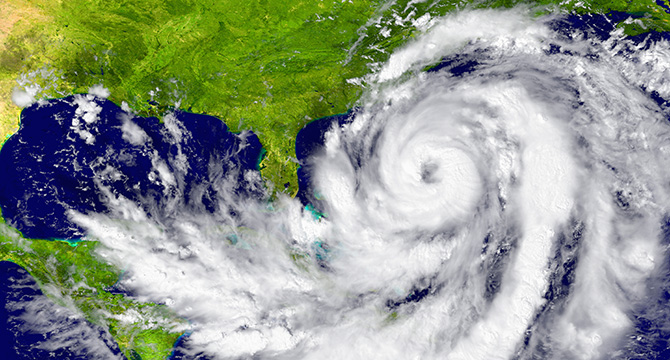
The threat presented by Hurricane Florence has forced government officials to order South Carolina residents to evacuate hurricane zones. Safety should always be the No. 1 priority for the millions of individuals and families affected by the storm. The mandatory evacuation and closure of many businesses and schools in the area has shut down a number of manufacturing facilities and distributors located in South Carolina.
For manufacturing suppliers located in South Carolina and others in the supply chain impacted by these shutdowns, companies should look at their contracts to determine “force majeure” rights and requirements. Force majeure refers to circumstances beyond a party’s control that prevent the party from fulfilling its obligations under a contract. Common force majeure provisions may cover several categories of events that could impact suppliers and customers across the supply chain. These provisions often include a list of natural disasters or “acts of God,” including hurricanes.
Any party seeking to invoke the force majeure provision should be able to show that there are no alternative means for delivering parts under the contract. Increased costs alone will not be sufficient to prevail on a claim of force majeure. For example, if a company is able to ship parts from a different manufacturing facility, even if that requires running extra shifts, paying employees overtime and/or expedited freight, then it will be very difficult to show that it was unable to perform under the contract.
Here are some best practices for a company to follow when seeking to invoke the force majeure provision of a contract or when a customer receives a force majeure notice:
- Review the contract’s exact force majeure provision to determine what is allowed and whether the covered event is listed;
- Confirm that the notice requirements have been met;
- Provide or obtain as much information about the specific force majeure claim as possible, including the timing, the number of impacted parts/facilities, and when the force majeure event is expected to conclude;
- The parties should work together to assess parts on hand, whether there is a bank of parts that can be accessed, whether there are other manufacturing lines available at different locations, the affected supplier’s allocation plan (note: a commercially reasonable allocation across customers is required), and whether and when an alternate supplier can be ramped up;
- Be aware of the other party’s rights if force majeure is invoked, which may include the right to terminate and source from an alternate supplier or to terminate after a certain period of time; and
- Look across your supply chain to determine whether a sub-supplier’s force majeure notice triggers a force majeure event requiring that notice be provided to your customers.
Vanessa Miller is a member of Foley’s Automotive and Manufacturing Supply Chain Team. She is counseling a number of clients regarding supply chain issues related to Hurricane Florence. For additional information, please do not hesitate to contact Vanessa Miller at vmiller@foley.com or +1 313.234.7130.
